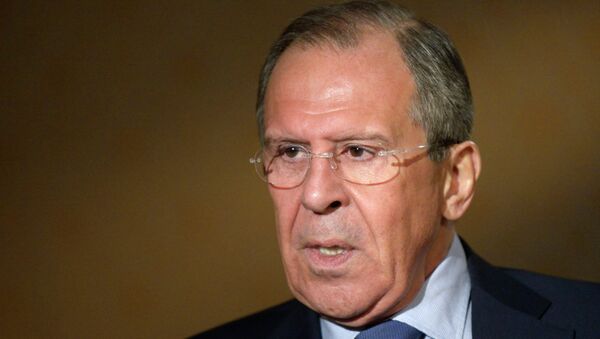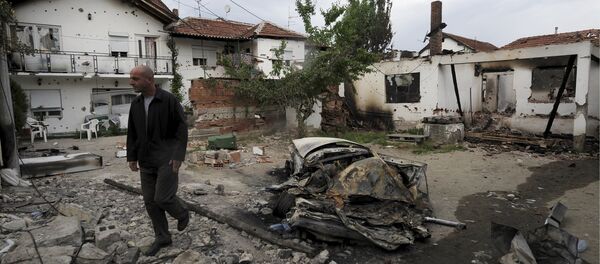“I believe that if the European Union bases its approach [to the proposed Turkish Stream] on a critical evaluation of the situation, taking into consideration its own interest in ensuring European energy security, Brussels will support these talks [on the pipeline project between Russia and European states] and contribute to the realization of these ideas,” Lavrov said at a press conference following a meeting with his Serbian counterpart Ivica Dacic in Belgrade.
The Russian foreign policy chief noted that Moscow has detected interest in the Turkish Stream project from Greece, Macedonia, Serbia, Hungary and other countries in the region.
"I believe, what matters the most now is to consider practical aspects from the point of view of logistics and from the point of view of funding,” Lavrov added.
Dacic confirmed during the same press conference Belgrade’s interest in joining the Turkish Stream and called on the European Union to clarify its stance on the project.
The Turkish Stream is a substitute for the South Stream pipeline project, which Moscow cancelled in December 2014 over the position taken on it by the European Union. The European Commission claimed that the South Stream would violate the EU Third Energy Package that prohibits simultaneous ownership of both the gas and the pipeline through which it flows.
The Turkish Stream pipeline will run across Turkey, to a gas hub on the Turkish-Greek border from where it is planned that the Russian gas will flow to consumers in southern Europe. The Turkish Stream is expected to become operational in December 2016. Its annual capacity is to be about 63 billion cubic meters.



